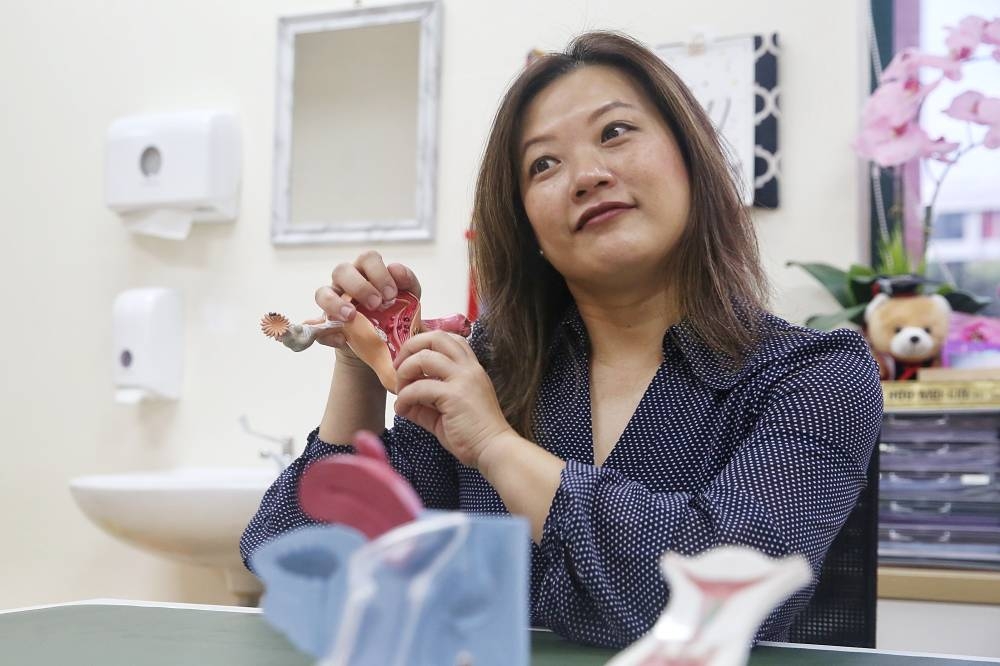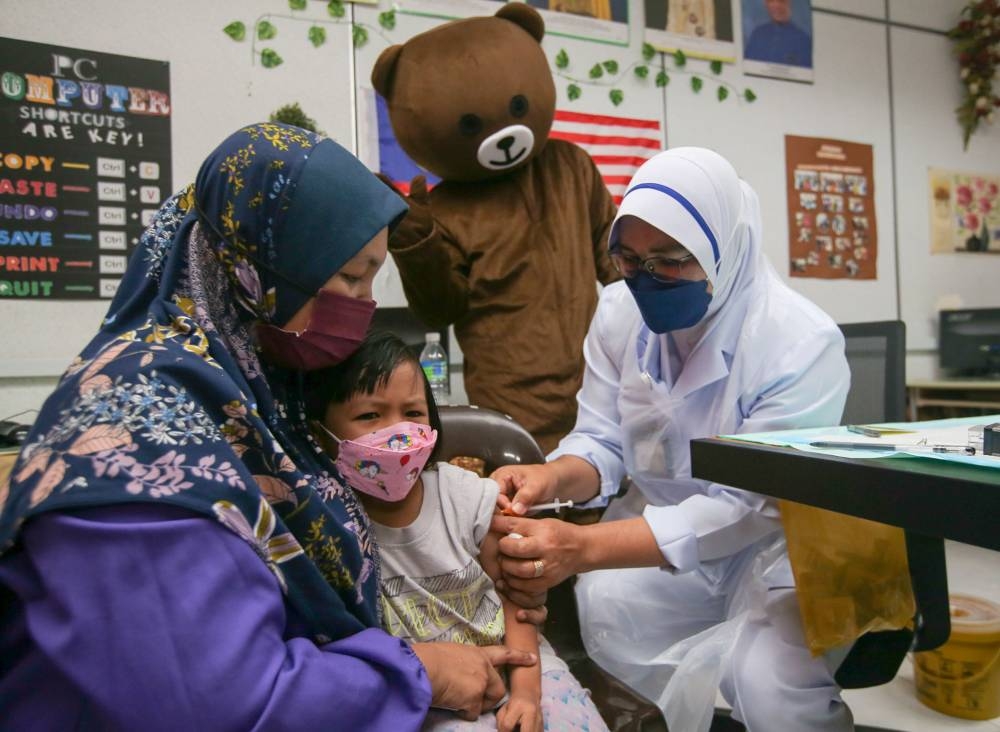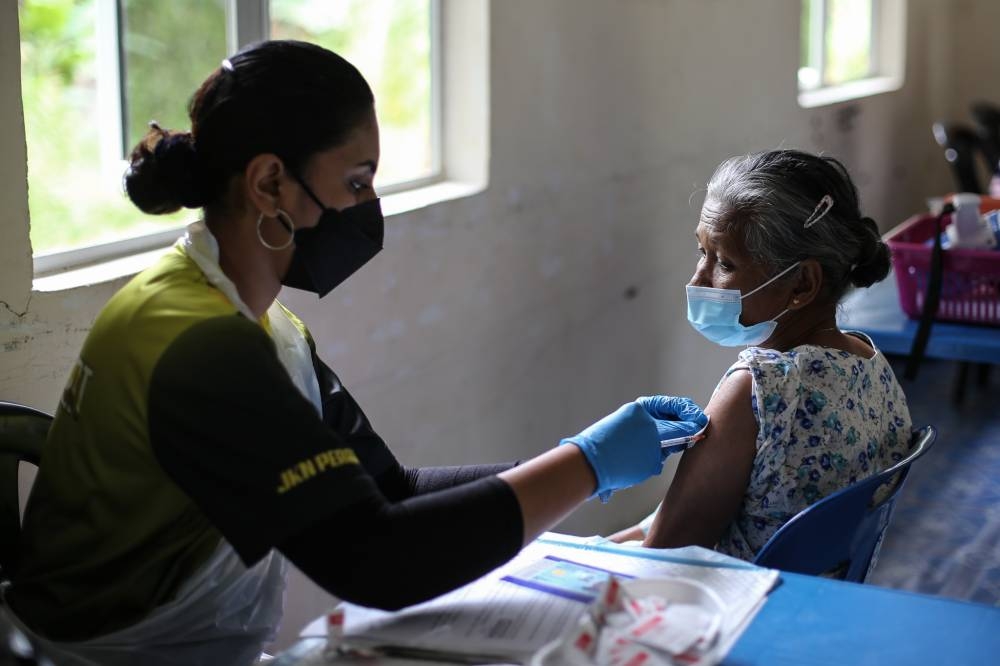KUALA LUMPUR, July 20 — When Raihan Mazlan did not get her period on time after her first Covid-19 vaccination dose, she became concerned.
That is because the 20-year-old human resources officer has always had them at regular intervals, after being diagnosed with a hormonal disorder called polycystic ovary syndrome (PCOS).
“Ever since I got diagnosed with PCOS four years ago, I don’t miss periods anymore. Only during really stressful times of the year,” she said, recalling that she could go months without menstruating before her diagnosis.
Two weeks later, she began her menstruation.
But then it happened again after her second Covid-19 vaccination dose. This time, she missed a whole menstruation cycle.
To Raihan’s relief, her period resumed eventually and on time, but to this day, she notes that the flow has been unusually heavy.
While fever, headaches, fatigue, and muscle pains have been reported among the most common side effects of receiving a Covid-19 vaccine, for half the world’s population who menstruate, disrupted cycles can be added to the list.
After the rollout of Covid-19 vaccines, stories of disrupted period cycles began to surface.
Sofia, a mother of three girls who only wanted to be known by her first name to protect her family’s privacy, was alarmed when her youngest got her period the very same evening after getting the vaccine under the National Covid-19 Immunisation Programme for Children in February.
The girl is only nine-years-old, far younger than her two older sisters who got their first menses at ages 12 and 13.
“I thought it was her period although it seemed too early so I suspected it was the vaccine. I thought I was overreacting,” Sofia related to Malay Mail.
“Even though she’s nine, she’s still highly private about her period. But she’s a kid so I saw all the pads and blood on her underwear.”
The next month she had her period again so the Malaysian mum thought: “Yeah, OK, she got the period, it’s not the vaccine”.
But Sofia’s youngest daughter stopped having periods after two months, leaving them both wondering why.
Discussions about disrupted menstrual cycles have stayed largely as anecdotes shared on social media until a study published on January 5 in the journal Obstetrics and Gynecology confirmed that Covid-19 vaccines can have a “small change in cycle length but not menses length”.
The US study collected online data from menstrual tracker app Natural Cycles and gathered 3,959 cisgender women, of which 2,403 are vaccinated and 1,556 unvaccinated.
On July 15, a new study gathered 39,000 responses from a more diverse group of people including transgender men, people on long-acting contraceptives, and post-menopausal women.
They found that 42 per cent of people with regular menstrual cycles experienced heavier bleeding after vaccination, while 44 per cent reported no change and 14 per cent reported lighter periods.
The study also found that 39 per cent of respondents on gender-affirming hormone treatments, 71 per cent of people on long-acting contraceptives and 66 per cent of postmenopausal women experienced breakthrough bleeding after one or both of their Covid vaccine.
Breakthrough bleeding is any bleeding or spotting one may experience between their normal menstrual periods or during pregnancy.
While there does not appear to be a Malaysian study on the effects of the Covid-19 vaccination here, local health experts said menstrual disruptions are only temporary as the body will self-regulate after a few cycles.

What is causing these changes?
“Covid-19 causes a lot of stress. Our periods are designed in a way that if there is a lot of stress going on, it recognises that it’s not a good time to get pregnant. Therefore, the period will disappear,” gynaecologist and obstetrician Dr Hoo Mei Lin at Sunway Medical Centre told Malay Mail when contacted.
Dr Hoo explained that the same thing happens when a person goes through drastic weight loss in a short span of time or isn’t meeting nutritional requirements.
“One plausible explanation is that in times of stress, the female system is designed to temporarily down regulate to prevent pregnancy and conserve energy,” said Dr Joyce Lee Chai Yuit, a consultant obstetrician and gynaecologist in Subang Jaya Medical Centre.
“The Covid vaccine itself is designed to initiate an immune response. The resulting inflammation may transiently affect the hormonal balance resulting in the change in ovulation and ovarian function.
“The inflammation may also temporarily alter how the womb lining breaks down and sheds, resulting in heavier periods,” Dr Lee explained, adding that these effects at most affect menstrual cycles for one to two months.
When someone is stressed out, cortisol levels increase which could signal your body to stop making certain hormones that cause ovulation.
“It’s an evolutionary thing. Different people react differently. Some are more susceptible to the vaccine instead of others, that’s why some people’s periods went wonky,” Dr Hoo, who is also the president of the Obstetrical & Gynaecological Society of Malaysia, explained.
Only just recovering from an unpleasant round of menstrual-related side effects from her booster shot in January, 27-year-old law student Dilpreet Kaur Gill remains hesitant about getting a second booster.
On top of having delayed period cycles, Dilpreet started getting a slew of premenstrual symptoms including immense abdominal pain, nausea and hormonal acne.
“It’s an active hormonal disruption,” she suspects. “I haven’t changed my skincare, nor have I done anything different with my diet. Everything is pointing towards the vaccine. That’s why I’m hesitant on taking the booster shot because I don’t know what is going to happen next.”
However, Dr Hoo emphasised that correlation does not always equal causation, and noted that there might be underlying issues that can exacerbate these side effects.
“We have not seen the links (between the vaccine and disrupted cycles). You have to consider if your menstrual problems are in fact caused by the Covid-19 vaccination.
Despite many anecdotal reports of menstrual disruption, experts have said that as of date, there are no solid links that can say for sure that the changes are a direct effect of the vaccine itself.

What to do if you notice period problems after Covid vaccination?
According to the gynaecologists, it is a good idea to see a doctor if your menstrual problem persists for longer than two or three cycles.
“Being updated with the knowledge behind how the vaccine may affect the menstrual cycle is of prime importance so that we do not dismiss patients’ concerns.
“But what is also important is to rule out other possible causes for menstrual disturbances. For example: polycystic ovarian syndrome, fibroid, endometriosis, adenomyosis, etc which can also contribute to a change of menstrual pattern.
“After which we will adopt an expectant approach and have a menstrual log to ascertain if the menstrual irregularities persist. If it is related to the vaccine or infection, problems usually do not persist beyond one to two cycles. If there is another underlying cause then it should be treated accordingly,” Dr Lee said.
“If you have menstrual problems and it doesn’t bother you too much, just wait it out for three months and it should right itself. If it bothers you a lot as your periods are very heavy, your periods don’t come, please go see a doctor,” Dr Hoo said.





















